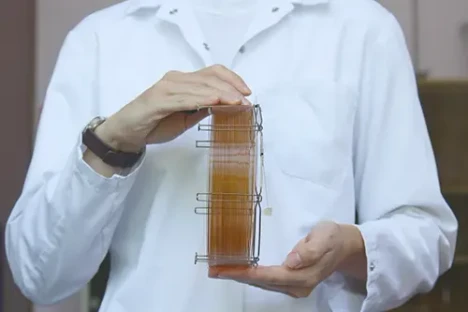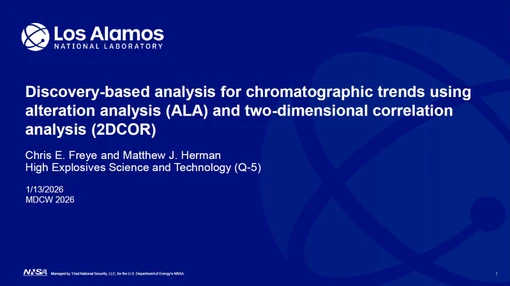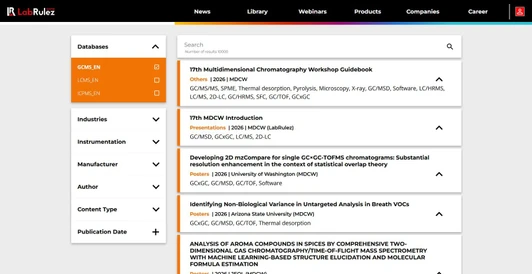Chemometric analysis for GC×GC-TOFMS jet and rocket fuel characterization (Grant Ochoa, MDCW 2023)

- Photo: MDCW: Chemometric analysis for GC×GC-TOFMS jet and rocket fuel characterization (Grant Ochoa, MDCW 2023)
- Video: LabRulez: Grant Ochoa: Chemometric analysis for GC×GC-TOFMS jet and rocket fuel characterization (MDCW 2023)
- 🎤 Presenter: Grant Ochoa, Robert Synovec (University of Washington, Seattle, USA)
💡 Book in your calendar: 15th Multidimensional Chromatography Workshop (MDCW) January 2024
-Workshop-Main-Banner_l.webp) 15th Multidimensional Chromatography (MDC) Workshop 2024
15th Multidimensional Chromatography (MDC) Workshop 2024
Abstract
Kerosene-based jet and rocket fuels are critical to the success of the aerospace propulsion industry. There is an ongoing need to assess fuel composition more fully for the purpose of improving quantitative connections between fuel composition, properties, and system performance. Addressing this challenge benefits from implementation of two-dimensional (2D) gas chromatography with time-of-flight mass spectrometry detection (GC×GC-TOFMS) coupled with robust chemometric data analysis tools.
Working in the framework of implementing tile-based Fisher ratio (F-ratio) analysis, which discovers differences between sample classes, we have developed methodology to determine pure mass channels for discovered analytes for rapid and accurate quantification, which can be leveraged to facilitate class comparison-enabled mass spectrum purification (CCE-MSP) to obtain the pure mass spectrum for confident identification of discovered features.
Since polar compounds play an important role in thermal performance, developing tools for determining the polar content is paramount. To this end, we have implemented solid phase extraction (SPE) with GC×GC-TOFMS and tile-based F-ratio analysis, and more recently 1v1 analysis, which requires only one chromatogram per class to discover class distinguishing compounds, to comprehensively categorize the fuel components due to bulk hydrocarbons and/or to minor polar compounds.
Lastly, these approaches are integrated to gain an in-depth understanding of the SPE sampling for these fuels. By analyzing sequential fractions of fuel passed through a SPE cartridge we discover, identify, and quantify analytes affected by SPE using either silica or alumina phases. Ultimately, this research leads to improved SPE sampling of targeted polar compounds.
-Workshop-LOGO_s.webp)



